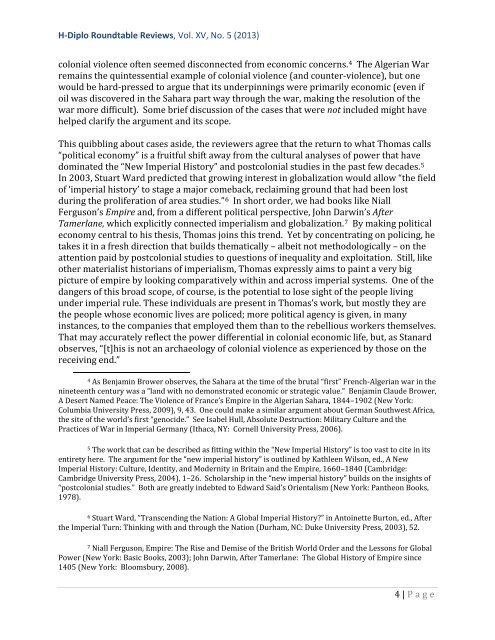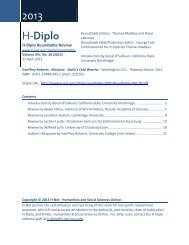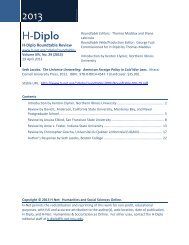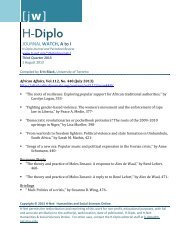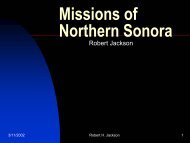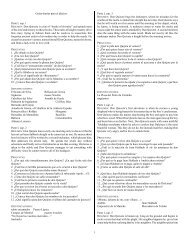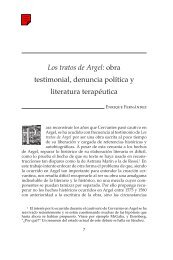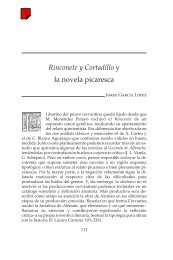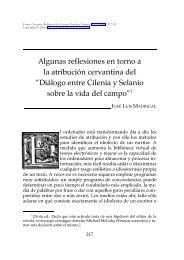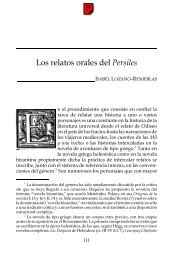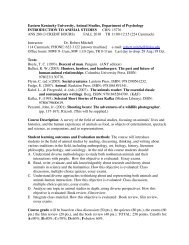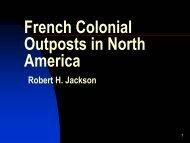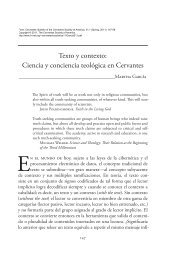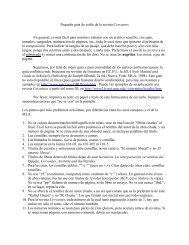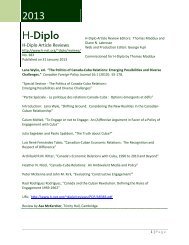H-Diplo Roundtable on Martin Thomas. Violence and ... - H-Net
H-Diplo Roundtable on Martin Thomas. Violence and ... - H-Net
H-Diplo Roundtable on Martin Thomas. Violence and ... - H-Net
Create successful ePaper yourself
Turn your PDF publications into a flip-book with our unique Google optimized e-Paper software.
H-<str<strong>on</strong>g>Diplo</str<strong>on</strong>g> <str<strong>on</strong>g>Roundtable</str<strong>on</strong>g> Reviews, Vol. XV, No. 5 (2013)<br />
col<strong>on</strong>ial violence often seemed disc<strong>on</strong>nected from ec<strong>on</strong>omic c<strong>on</strong>cerns. 4 The Algerian War<br />
remains the quintessential example of col<strong>on</strong>ial violence (<strong>and</strong> counter-violence), but <strong>on</strong>e<br />
would be hard-pressed to argue that its underpinnings were primarily ec<strong>on</strong>omic (even if<br />
oil was discovered in the Sahara part way through the war, making the resoluti<strong>on</strong> of the<br />
war more difficult). Some brief discussi<strong>on</strong> of the cases that were not included might have<br />
helped clarify the argument <strong>and</strong> its scope.<br />
This quibbling about cases aside, the reviewers agree that the return to what <strong>Thomas</strong> calls<br />
“political ec<strong>on</strong>omy” is a fruitful shift away from the cultural analyses of power that have<br />
dominated the “New Imperial History” <strong>and</strong> postcol<strong>on</strong>ial studies in the past few decades. 5<br />
In 2003, Stuart Ward predicted that growing interest in globalizati<strong>on</strong> would allow “the field<br />
of ‘imperial history’ to stage a major comeback, reclaiming ground that had been lost<br />
during the proliferati<strong>on</strong> of area studies.” 6 In short order, we had books like Niall<br />
Fergus<strong>on</strong>’s Empire <strong>and</strong>, from a different political perspective, John Darwin’s After<br />
Tamerlane, which explicitly c<strong>on</strong>nected imperialism <strong>and</strong> globalizati<strong>on</strong>. 7 By making political<br />
ec<strong>on</strong>omy central to his thesis, <strong>Thomas</strong> joins this trend. Yet by c<strong>on</strong>centrating <strong>on</strong> policing, he<br />
takes it in a fresh directi<strong>on</strong> that builds thematically – albeit not methodologically – <strong>on</strong> the<br />
attenti<strong>on</strong> paid by postcol<strong>on</strong>ial studies to questi<strong>on</strong>s of inequality <strong>and</strong> exploitati<strong>on</strong>. Still, like<br />
other materialist historians of imperialism, <strong>Thomas</strong> expressly aims to paint a very big<br />
picture of empire by looking comparatively within <strong>and</strong> across imperial systems. One of the<br />
dangers of this broad scope, of course, is the potential to lose sight of the people living<br />
under imperial rule. These individuals are present in <strong>Thomas</strong>’s work, but mostly they are<br />
the people whose ec<strong>on</strong>omic lives are policed; more political agency is given, in many<br />
instances, to the companies that employed them than to the rebellious workers themselves.<br />
That may accurately reflect the power differential in col<strong>on</strong>ial ec<strong>on</strong>omic life, but, as Stanard<br />
observes, “[t]his is not an archaeology of col<strong>on</strong>ial violence as experienced by those <strong>on</strong> the<br />
receiving end.”<br />
4 As Benjamin Brower observes, the Sahara at the time of the brutal “first” French-Algerian war in the<br />
nineteenth century was a “l<strong>and</strong> with no dem<strong>on</strong>strated ec<strong>on</strong>omic or strategic value.” Benjamin Claude Brower,<br />
A Desert Named Peace: The <strong>Violence</strong> of France’s Empire in the Algerian Sahara, 1844–1902 (New York:<br />
Columbia University Press, 2009), 9, 43. One could make a similar argument about German Southwest Africa,<br />
the site of the world’s first “genocide.” See Isabel Hull, Absolute Destructi<strong>on</strong>: Military Culture <strong>and</strong> the<br />
Practices of War in Imperial Germany (Ithaca, NY: Cornell University Press, 2006).<br />
5 The work that can be described as fitting within the “New Imperial History” is too vast to cite in its<br />
entirety here. The argument for the “new imperial history” is outlined by Kathleen Wils<strong>on</strong>, ed., A New<br />
Imperial History: Culture, Identity, <strong>and</strong> Modernity in Britain <strong>and</strong> the Empire, 1660–1840 (Cambridge:<br />
Cambridge University Press, 2004), 1–26. Scholarship in the “new imperial history” builds <strong>on</strong> the insights of<br />
“postcol<strong>on</strong>ial studies.” Both are greatly indebted to Edward Said’s Orientalism (New York: Panthe<strong>on</strong> Books,<br />
1978).<br />
6 Stuart Ward, “Transcending the Nati<strong>on</strong>: A Global Imperial History?” in Antoinette Burt<strong>on</strong>, ed., After<br />
the Imperial Turn: Thinking with <strong>and</strong> through the Nati<strong>on</strong> (Durham, NC: Duke University Press, 2003), 52.<br />
7 Niall Fergus<strong>on</strong>, Empire: The Rise <strong>and</strong> Demise of the British World Order <strong>and</strong> the Less<strong>on</strong>s for Global<br />
Power (New York: Basic Books, 2003); John Darwin, After Tamerlane: The Global History of Empire since<br />
1405 (New York: Bloomsbury, 2008).<br />
4 | P age


